
We reviewed over 200 businesses worldwide*, and have identified over 165 businesses operating in the care economy across Latin America, Sub-Saharan Africa and Asia who met the following 4 criteria:
1. Geography focus: operating in project target countries.
2. Care economy impact: business activities recognize, reduce, reward or redistribute care work.
3. Proof of concept: care economy activities at least at the launch stage (none of the businesses are at concept stage).
4. Market-based intervention: already or planning to be financially profitable or to generate income in the medium term.
Out of the mapping we selected 60 businesses to conduct a full profile and showcase potential investment opportunities. These profiles have been created from information and data provided by the business itself. Use the filter on the left to access the businesses profiled.
* Disclaimer: The data presented in the business mapping and profiles is based on information provided by the businesses and has not been independently verified
1. Geography focus: operating in project target countries.
2. Care economy impact: business activities recognize, reduce, reward or redistribute care work.
3. Proof of concept: care economy activities at least at the launch stage (none of the businesses are at concept stage).
4. Market-based intervention: already or planning to be financially profitable or to generate income in the medium term.
Out of the mapping we selected 60 businesses to conduct a full profile and showcase potential investment opportunities. These profiles have been created from information and data provided by the business itself. Use the filter on the left to access the businesses profiled.
* Disclaimer: The data presented in the business mapping and profiles is based on information provided by the businesses and has not been independently verified
Filter Your Results
BBOXX Ltd
Website: www.bboxx.com
Headquarters: United Kingdom
Country of Operations: Kenya, Nigeria, Senegal, Pakistan, DRC, Togo, Ivory Coast, Guinea, Mali, Rwanda, Burkina Faso
Women owned / led: Information not available

About the organization: BBOXX provides affordable, reliable, and clean electricity and other utility services to those who are living without them. It designs, manufactures, distributes and finances decentralised energy solutions. It is a for-profit company that operates in 11 countries in Asia and Africa. It has provided clean, reliable and affordable electricity to households, communities and businesses. The services provided by BBOXX have improved the quality of life for millions of customers, especially women and children, by providing them access to lighting.
Stage of Growth: Mass roll-out/Expansion
Types of Services: Domestic services
Activities in the care economy: Provision of affordable time and labour saving technology and products
Pathway to impact: Reduce
Expertos
Website: www.experts.link
Headquarters: Peru
Country of Operations: Peru
Women owned / led: Information not available

About the organization: Expertos is a socially responsible company in Peru that offers a wide range of domestic services. These include cleaning, moving, and other technical services. They aim to reduce the time spent by households in domestic activities
Stage of Growth: Not available
Types of Services: Domestic services
Activities in the care economy: Provision of affordable time and labour saving technology and products (e.g. product that makes washing, cooking more efficient)
Pathway to impact: Reduce, Redistribute
Hadas
Website: www.hadas.pe
Headquarters: Peru
Country of Operations: Peru
Women owned / led: Founded by at least one woman, At least 51% owned by women, At least 30% women in senior leadership positions

About the organization: Hadas is a digital platform that allows its users to request domestic services for houses or offices from any device. Cleaning services are performed by trained and experienced keepers and cleaning professionals. Hadas has an innovative recruitment process, which is totally automated and takes around 48 hours to be completed. They also provide continuing education to all their employees. Hada´s mission is to innovate and reward hourly cleaning services with decent work opportunities powered by the use of technology.
Stage of Growth: Mass roll-out/Expansion
Types of Services: Domestic services
Activities in the care economy: Provision of technology & services that train/upskill domestic & care workers (e.g. technology that links employers to domestic/care workers), Provision of technology, services & policies/practice that improve condition for domestic & care worker (e.g. apps that calculate decent remuneration), Provision of affordable time and labour saving technology and products (e.g. product that makes washing, cooking more efficient)
Pathway to impact: Redistribute, Reduce, Reward
I.A.B. – Institut Academic of Babies
Website: www.iab-afrique.com
Headquarters: Senegal
Country of Operations: Senegal
Women owned / led: Founded by at least one woman, At least 51% owned by women, At least 30% women in senior leadership positions, At least 30% of women in board of directors
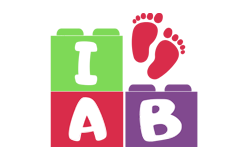
About the organization: I.A.B is a social business that trains care workers in early childhood care. In Senegal, day care centers are not regulated and there is no school that is specifically focused on training related early childhood. As a result, children are less likely to go to nurseries. Through it’s training programs I.A.B has increased the skills of childcare workers, resulting in higher incomes for these workers. I.A.B’s impact includes improved health conditions among toddlers, decent work opportunties for care workers, and increased productivity of parents who are assured that the care and development of their children is in expert hands.
Stage of Growth: Mass roll-out/Expansion
Types of Services: Infant-care (children younger than 1-year), Child-care (Ages 1 to 5), Domestic services
Activities in the care economy: Provision of technology & services that train/upskill domestic & care workers
Pathway to impact: Recognize, Reward
Instituto de Promoción y Formación de Trabajadoras del Hogar IPROFOTH
Website: facebook.com/IprofothPeru
Headquarters: Peru
Country of Operations: Peru
Women owned / led: Founded by at least one woman, At least 51% owned by women, At least 30% women in senior leadership positions, At least 30% of women in board of directors
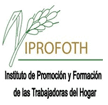
About the organization: IPROFOTH is a Peruvian organization made up and directed 100% by women domestic workers. They offer nursery services for caring for and stimulating children of care workers. The most vulnerable care and domestic workers, mostly migrant women, receive shelter services, training, job placement guidance, and labor rights protection. IPROFOTH’s main challenge is to raise awareness in the recognition and appreciation of the contribution made by women in the care economy. They seek to improve the quality of life of domestic workers, empowering them via good compensations, resilience strategies, and recognition of their contribution to the care economy. Iprofoth’s political action and articulation with civil society pushed the ratification of the International Labor Office’s Convention 189 and the approval of a new law for domestic workers in Peru.
Stage of Growth: Small scale roll-out/Early stage
Types of Services: Child-care (Ages 1 to 5), Child-care (Ages 6 and above), Domestic services
Activities in the care economy: Provision of technology & services that train/upskill domestic & care workers (e.g. technology that links employers to domestic/care workers), Provision of technology, services & policies/practice that improve condition for domestic & care worker (e.g. apps that calculate decent remuneration), Provision of affordable services that provide care & domestic work (e.g. affordable daycare services in rural areas), Awareness raising on the care economy through marketing, information campaigns & programmes that raise awareness & increase motivation
Pathway to impact: #N/A
Nanas & Amas
Website: nanasyamas.com
Headquarters: Peru
Country of Operations: Peru
Women owned / led: Founded by at least one woman, At least 51% owned by women, At least 30% women in senior leadership positions, At least 30% of women in board of directors
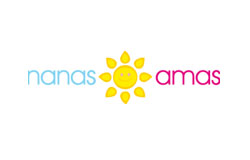
About the organization: Nanas & Amas connects domestic workers, such as babysitters, home helpers, and elderly caregivers, with families that require their services. This Peruvian agency aims to transform domestic work into a platform so that women who did not have the opportunity to do it at the time can grow, living the happy and prosperous lives that they deserve. Through its platform, Nanas & Amas work to promote domestic work and decent conditions as a tool to build prosperity for the people who do the work. The agency has achieved the approval of a law key to advance domestic workers’ formalization by granting economic incentives to employers. Also, they have started the Student Worker Movement, getting competitors to join them.
Stage of Growth: Mass roll-out/Expansion
Types of Services: Infant-care (children younger than 1-year), Child-care (Ages 1 to 5), Child-care (Ages 6 and above), Elderly-care (Ages 60 and above), Domestic services
Pathway to impact: Reduce, Reward
Oolu
Website: oolusolar.com
Headquarters: Senegal
Country of Operations: Nigeria, Senegal, Mali, Burkina Faso, Niger, Cameroon
Women owned / led: Founded by at least one woman, At least 30% women in senior leadership positions, At least 30% of women in board of directors
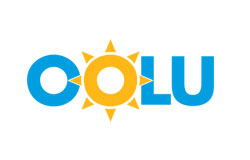
About the organization: Oolu Solar is a for-profit company that provides affordable solar home systems to rural households in Nigeria, Senegal, Mali, and Burkina Faso. These solar home systems provide households with brighter, more efficient lights and in-home chargers at a small fraction of their standard monthly energy expenditure. Its products have helped reduce and eliminate the need for rural people to travel kilometers to nearby electrified villages to charge their phones. Lighting from the solar home systems allows children to study an average of one to two hours longer each night. The company has sold over 60,000 solar home systems to customers in the region. 91% of solar light users who previously used kerosene lamps experienced an improvement in their health.
Stage of Growth: Mass roll-out/Expansion
Types of Services: Domestic services
Activities in the care economy: Provision of affordable time and labour saving technology and products
Pathway to impact: Reduce
Prime Indonesia
Website: primeindonesia.id
Headquarters: Indonesia
Country of Operations: Ethiopia, Ghana, Indonesia, Kenya, Nigeria, Senegal, South Africa, Zambia, Cambodia, Papua New Guinea
Women owned / led: Founded by at least one woman
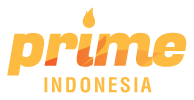
About the organization: Prime Indonesia is a for-profit enterprise that produces and distributes energy-saving biomass stoves. The company serves poor people in Indonesia by providing cheaper cook stoves. It reduces the amount of time spent by women in cooking and wood collection, and saves households from spending on refilling LPG or Kerosene. In addition, prime stoves are also healthy and energy-efficient products, reducing maternal and child mortality due to smoke when cooking using traditional stoves.
Stage of Growth: Mass roll-out/Expansion
Types of Services: Domestic services
Activities in the care economy: Provision of technology, services & policies/practice that improve conditions for domestic & care worker
Pathway to impact: Reduce
Tappers
Website: tappers.pe
Headquarters: Peru
Country of Operations: Peru
Women owned / led: Information not available
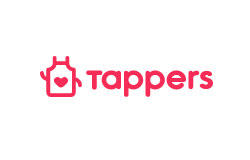
About the organization: Tappers are the first online food delivery platform in Peru. Tappers have impacted +150,000 clients and have created a community of housewives with a strong desire to excel in their love for cooking while generating income. Cooks and chefs selected to receive training to become “Tapperas” who excel in delivering a great product: homemade meals prepared with the best ingredients. Tappers aim to reduce households’ time in domestic activities, such as preparing meals and cooking.
Stage of Growth: Small scale roll-out/Early stage
Types of Services: Domestic services, Labour saving solutions
Pathway to impact: Reduce, Reward, Redistribute
